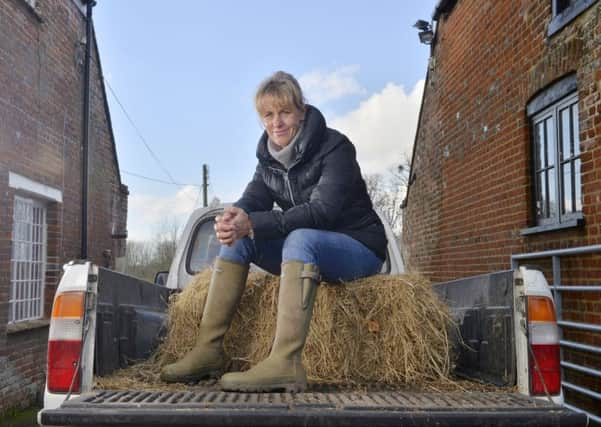New farm policy must fit with Whitehall resources, warns NFU leader Minette Batters


The union president said farmers are “understandably” concerned about Whitehall’s capability to get through the work needed to prepare for Brexit following a report by the cross-party Public Accounts Committee which said that “pervasive uncertainty” about the UK’s future relationship with the EU was undermining the preparedness for Brexit of both the Department for the Environment, Food and Rural Affairs (Defra) and the Department for International Trade.
The Government has dismissed the concerns but Ms Batters said: “The report highlights the extra burden that departments like Defra are having to manage because of the ongoing uncertainty about what the Brexit settlement will look like. This underlines the importance of ensuring domestic policy reform stemming from Brexit remains manageable and realistic and does not further stretch the machinery of government.”
Advertisement
Hide AdAdvertisement
Hide AdShe added that it was “absolutely imperative” for Government to ensure Defra and other departments are fully resourced for the extra challenges ahead.
Her remarks came as Lord Teverson, chairman of the parliamentary EU Energy and Environment Sub-Committee, said he had written to Environment Secretary Michael Gove to ask about the impact of a ‘no deal’ Brexit on those working in the environment, food and rural affairs sectors, and the preparations made by Defra for such a scenario.
The letter was prompted by the European Commission issuing notices which explain the ramifications for different sectors if the UK leaves the EU with no withdrawal agreement in place.
Lord Teverson said: “The ramifications of ‘no deal’, as set out in these notices, are significant: from the additional paperwork that businesses will need to complete in order to export to the EU, to transporters of live animals needing to obtain certification from an EU Member State in order to be able to drive in to the EU and UK vessels needing EU authorisation to fish in EU waters.
Advertisement
Hide AdAdvertisement
Hide Ad“Meeting these requirements would involve significant costs for individuals, businesses and Government. Some arrangements could also take considerable time to put in place. We have written to the Secretary of State to ask what steps he has taken to ensure the UK is prepared for this eventuality.”
Defra’s wide-ranging consultation on the post-Brexit future of food and farming policy is open for responses until Tuesday, May 8 and the NFU has urged farmers to have their say before the deadline.
